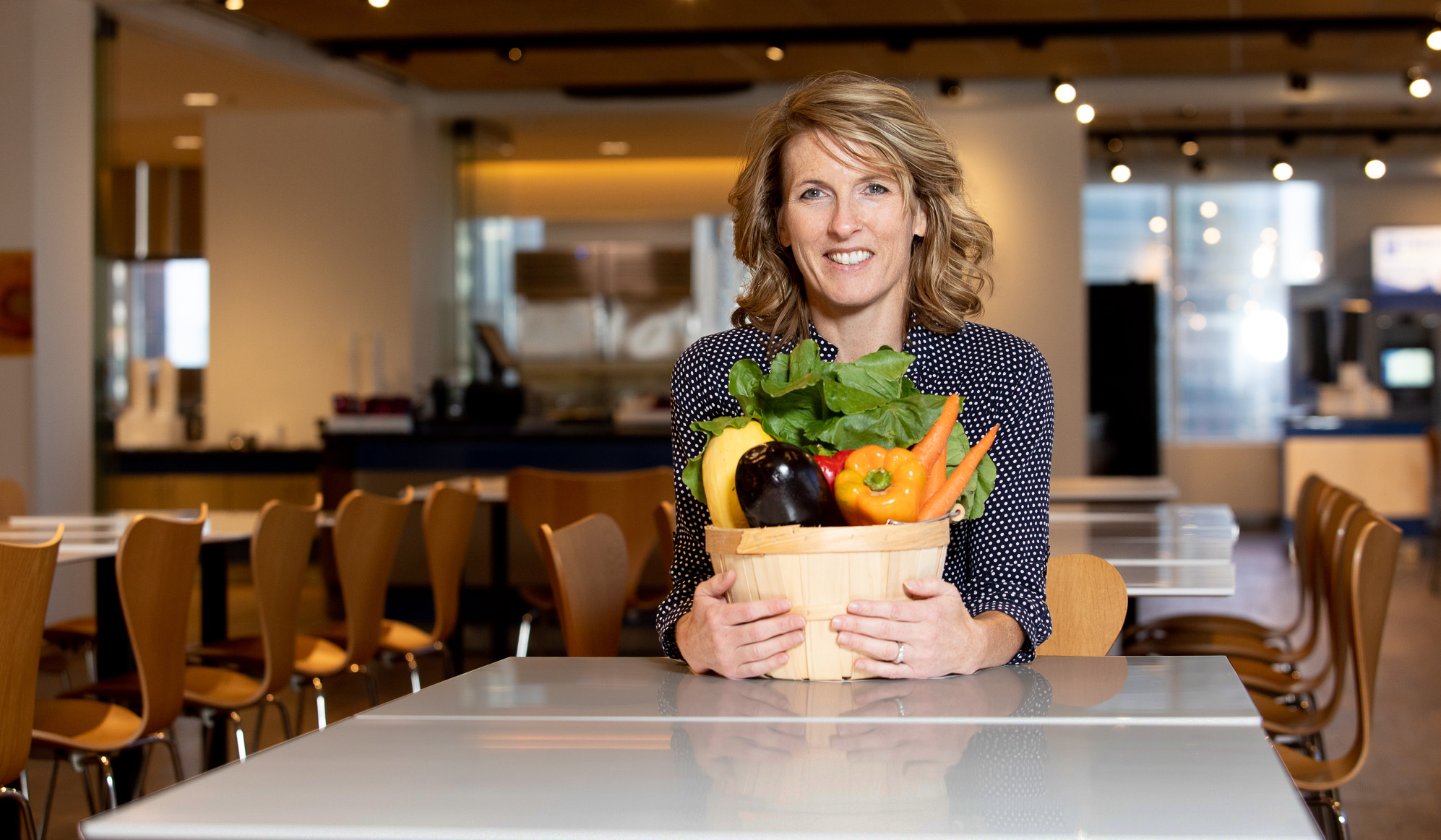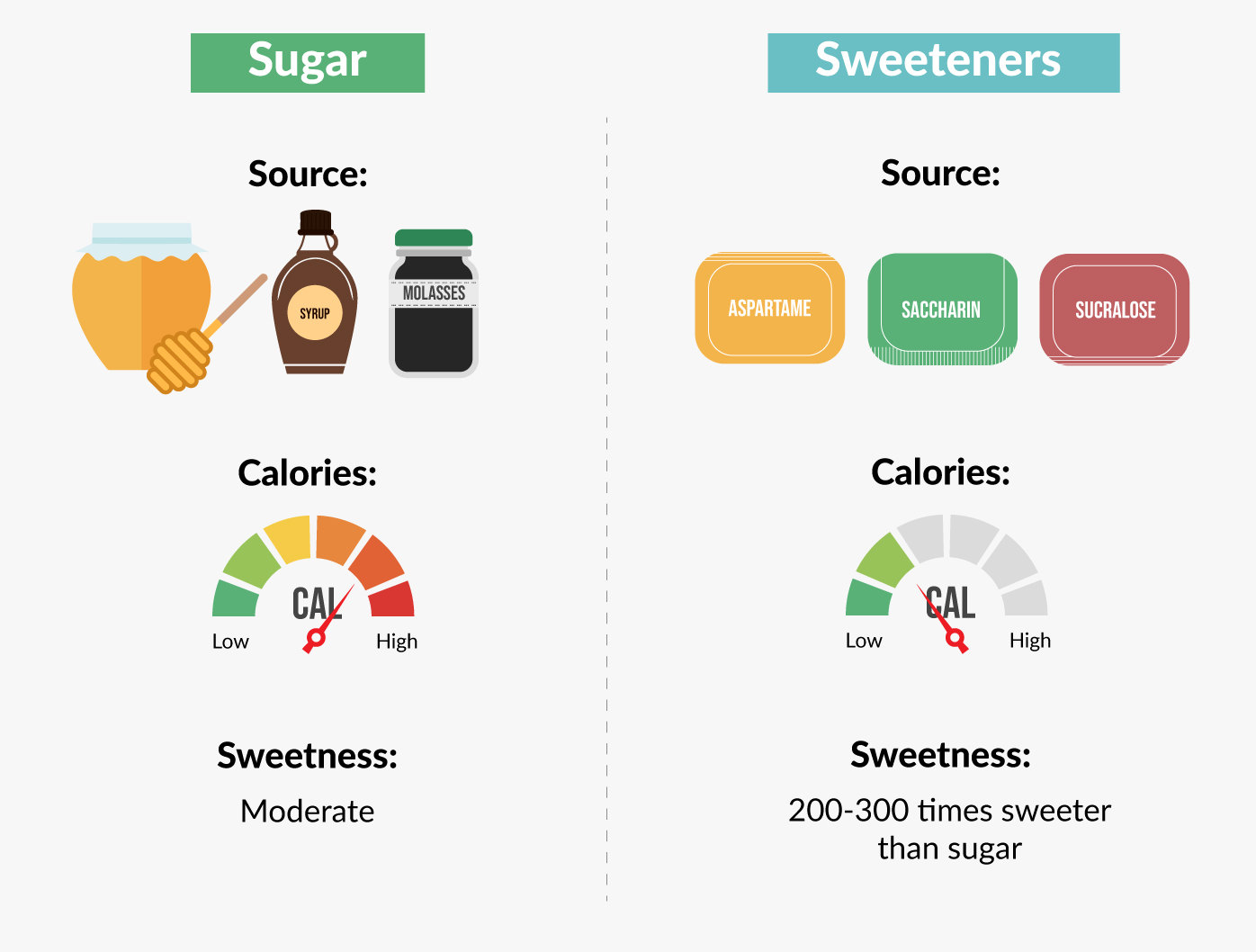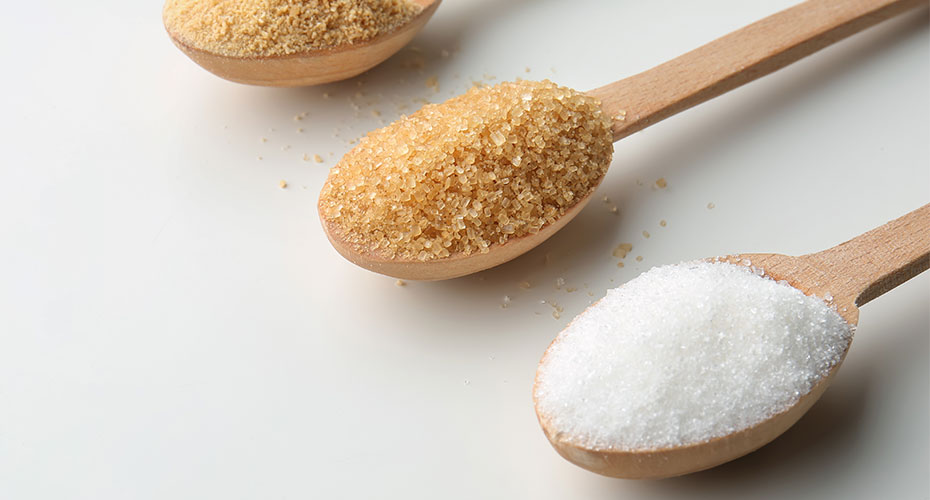Jul 17, 2023
The skinny on sugar and sweeteners
From sugar to saccharine to Stevia, there’s no shortage of sweeteners out there. But is one type better for us than another?
Learning about the types of sweeteners available, and how they may affect you, can help you meet your health goals, says Carolyn Chu, a dietitian with Blue Cross Blue Shield of Massachusetts.
“There are differences people should be aware of,” said Chu. And when it comes to cutting back or cutting out sweeteners, “What works best for one person might not be best for another.”

Naturally occurring sugars
The “purest” forms of sugar are from breakdowns of carbohydrates that naturally occur in fruits and vegetables, whole grains and dairy products (yes, dairy products contain a small amount of natural sugar), Chu said.
These are often the “best” foods to choose if you want something sweet, Chu says, because they typically also contain some fiber and protein, which helps slow down the absorption of sugar by the body, creating less of a “sugar spike.”
Chu adds that a 4-ounce serving of 100% fruit juice counts as a serving of fruit and is fine to drink as part of a balanced meal: “I tell parents with kids, don’t stress if your kids have a small glass of orange juice with breakfast if it’s a well-rounded meal,” she said.
Carbohydrates from pasta and white bread are highly refined and quickly raise blood glucose — almost as fast as table sugar.
Sugars versus sweeteners
Cane sugar and sugar-derived products such as molasses, honey, agave and high-fructose corn syrup, are added to foods including soft drinks, fruit drinks, cereal, cookies, cakes, candy and most processed foods, often to preserve them and enhance their flavor.
All these products have similar grams of sugar: Table sugar has 4.2 grams of sugar in a teaspoon, honey has 6 grams, and maple syrup and corn syrup have 5 grams. Agave syrup has 4.7 grams and is sweeter than table sugar, which means less can be used, which saves a small amount of calories.
Then there are artificial sweeteners, such as aspartame, saccharin and sucralose that are added to low-calorie foods. Plant-based sweeteners like Stevia and monk fruit also contain no calories.

“As a dietitian, I often get asked about sugar and sweeteners in the context of beverages—people want to know which to put in their coffee and whether to drink diet or regular soda,” Chu says.
The answer, she explains, comes down to a person’s overall health and health goals. Broadly speaking, sugar and sugar-derived products are higher in calories because our bodies convert them into energy for our cells, while artificial sweeteners turn into molecules that are not absorbed by the body and therefore are zero calories.
“If a person is prediabetic or diabetic and wants to lose weight and eat healthier, and they really like soda, I tell them diet soda is a better choice. Because of artificial sweeteners, diet soda has zero calories as opposed to a regular soda, which has 150 calories,” Chu says. She adds, “If a person can shave off some calories from their daily intake by consuming a diet soda or a smaller sized regular soda, that is a good approach.”
The same holds true for coffee sweeteners: People who are watching their calorie intake should choose an artificial sweetener instead of sugar.
If you do drink regular soda, put sugar in your coffee or eat something with added sugar, Chu advises you consume these as part of a balanced meal to ward off a blood sugar spike and crash.
Long-term effects
Many people are concerned that artificial sweeteners may cause cancer. While some studies have shown they can cause cancer in mice, Chu said there is no conclusive evidence that they cause cancer in humans: “Diet soda is not going to give you cancer,” she said.
Some researchers have found sugar has addictive properties, and the biggest danger with artificial sweeteners, Chu said, is that they often are 200-300 times sweeter than sugar, which “can intensify a person’s craving for sugar or sugary substances over time.”
A recent study showed the body’s response to artificial sweeteners may mimic its response to sugar, especially in obese patients, suggesting that artificial sweeteners should also be consumed in moderation.
While we don’t know all the long-term health effects of artificial sweeteners, Chu says, we do know the health dangers of sugar. Studies have shown that too much sugar can lead to high blood pressure, inflammation, obesity and diabetes, any of which can put a person at greater risk for a heart attack or stroke.
“People’s sugar intake is more than what it should be, particularly when it comes to beverages, and people who drink juice and soda tend to have more problems with weight gain. That’s because with beverages, sugar is in such a concentrated form, and there’s no fiber to slow it down,” Chu explained.
Small steps sustained over time
Regardless of the type of sweetener you consume, Chu encourages moderation and cutting down in any way you can—even if it’s small.
Nutritional guidelines recommend that less than 10% of an individual’s daily calories per day come from added sugar. For someone with a 2,000 calorie per day diet, that means less than 200 calories per day from added sugar.
Chu also encourages people to gradually cut back on the amount of sugar they put in their coffee and dilute sugary beverages with water: “Often it can take a while for our bodies to decrease their craving for sugar, but you would be surprised what you can get used to,” she says. “Any small changes you can make over a sustained period of time are going to benefit you the most in the long run.”
And, Chu said, when it comes to weaning yourself off sugar, knowledge—and a naturally sweet substitute—is power: She encourages people to look at food labels to see where hidden sugars or sweeteners may be lurking and to stock their fridge or pantry with fruit they like so when they have a craving for sugar they can reach for something that’s naturally sweet.
“Many people indulge in sweets every so often on holidays like Valentine’s Day, and that’s completely fine. The key is not to let those occasional days get you off track. Most of the time, we all should stay away from sugary and artificially sweetened beverages as much as possible,” Chu said.
Any decrease you can make in your sugar and sweetener intake will be beneficial for your body—whether it’s cutting back on the amount you put in your coffee, decreasing the amount of soda and juice you drink or eating less processed foods. Every little bit helps.
PHOTO OF CAROLYN CHU BY MICHAEL GRIMMETT

